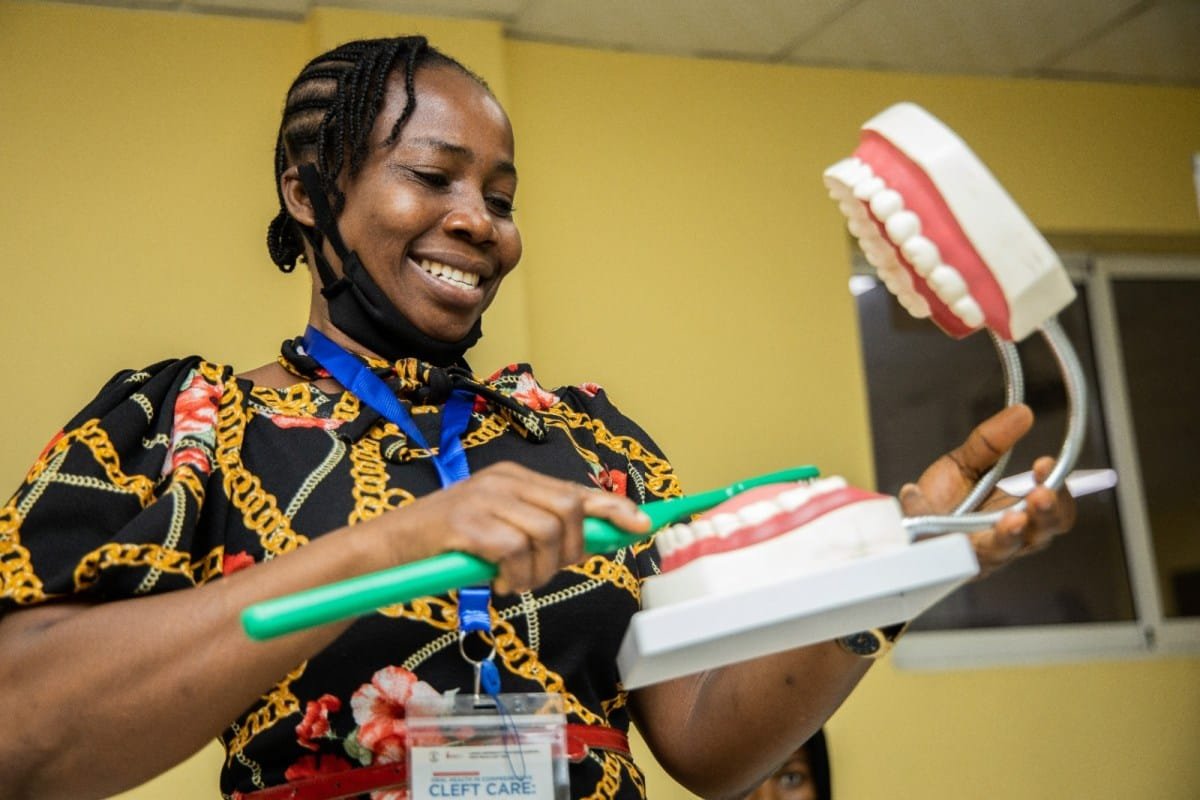[ad_1]
Smile Train has called on cleft-affected children and families to ensure they seek timely orthodontics and oral healthcare at the nearest partner hospital for treatment at no cost.
Smile Train Vice-President and Regional Director for Africa, Mrs Nkeiruka Obi in a message to mark the 2023 World Oral Health Day, noted that accessing timely oral healthcare would significantly decrease the development of tooth decay and cavities in affected children.
According to her, children with clefts were more likely to have missing or mispositioned teeth as they grow, and would often require ongoing orthodontic treatment.
She added that they may also be particularly susceptible to tooth decay or cavities and are often marginalized, excluded, and bullied, which could further restrict their access to basic dental and surgical care.
Obi further noted that without care, children with a cleft may end up in great pain and lose teeth at an early age, adding that this could impair their ability to chew, speak, and even sleep, significantly harming their health and quality of life.
She said: “It is essential that children with clefts, receive timely oral healthcare to not only significantly decrease the development of tooth decay and cavities but also improve quality of life in the long term. Timely oral health care uplifts cleft-affected children’s mental and emotional health and enables them to thrive.
“As we commemorate World Oral Health Day, we endeavor to provide quality cleft care so that patients with clefts can also be proud of their mouth.”
According to the World Health Organization, 3.5 billion people (50% of the world’s population) are affected by oral diseases, with 3 out of every 4 affected people living in low- and middle-income countries.
“Good oral health is essential for eating, breathing, and speaking, and contributes to overall health, well-being, and confidence.
Smile Train in Africa continues to build capacity for orthodontics professionals to enhance access to quality treatment as close to the patient as possible.
“Oral health professionals, cleft care team members, cleft community members, families, and patients themselves all have an essential role to play when it comes to preventing oral health diseases in patients with clefts—and the whole cleft community,” Obi added.
Related
[ad_2]
Source link



